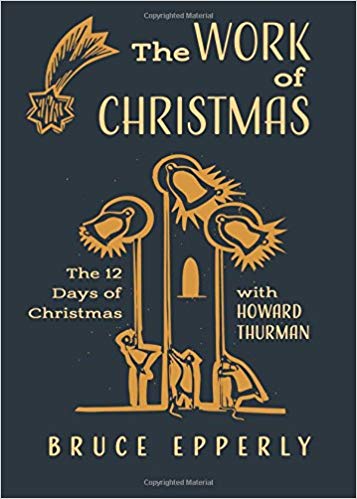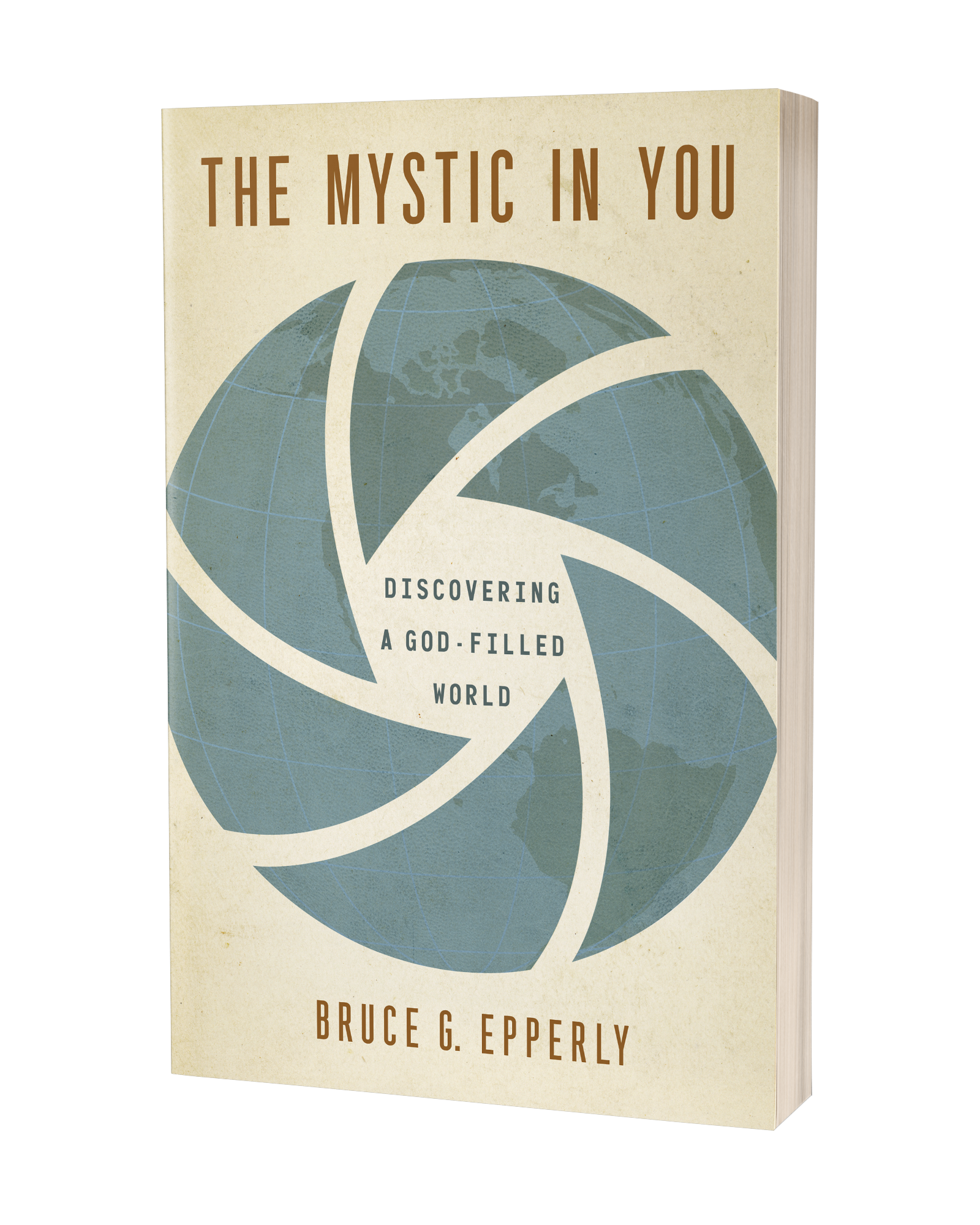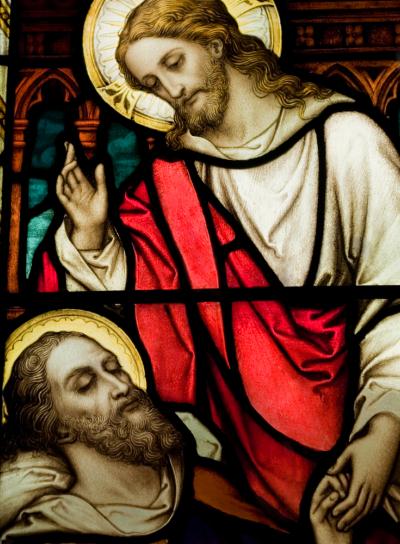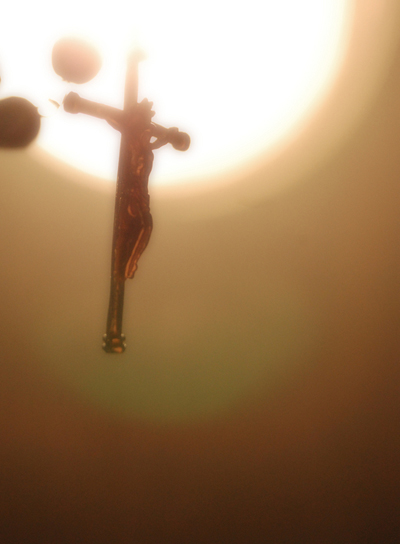Progressive Mysticism with Julian of Norwich
Theologian Karl Barth once counseled, “Take your Bible and take your newspaper, and read both. But interpret newspapers from your Bible.” In graduate school over 40 years ago, I heard a modification of Barth’s wisdom, “The preacher should have the New York Times in one hand and the Bible in the other.” This advice surely applies to the spiritual seeker and social activist as well. We must have our eyes trained on eternity while boldly living in our time and place. Touching eternity, the cosmic wisdom of God, grants perspective and hope in the moral arc of history. But the wide perspective – our hope in God’s arc of justice – is of value only if it guides our pathway in responding to the unique challenges of our time.
Activism is at the heart of progressive theology. The way of Jesus is both personal and social. Jesus’ embodiment of prophetic spirituality was reflected in his welcome of the marginalized, affirmation of women, expansion of the scope of salvation and ethical concern to include foreigners and the disinherited, and challenge to narrow purity codes which promoted exclusion. Jesus proclaimed that the “spirit of the Lord” was upon him, and this meant the healing of the social order as well as people’s religious lives.
This book is a celebration of the twelve days of Christmas, offering us a chance to dwell on the meaning of the season in dialog with the wisdom of one of America's greatest mystics and activists, Howard Thurman.
A number of years ago, I did a consultation for a progressive congregation in which the relationship between contemplation and social action was a source of friendly debate. On one side, several congregational leaders asserted that the task of the church is to change the world. The way of Jesus compels us to be activists, they contended, challenging anything that threatens human and nonhuman well-being. We must provide meals for the soup kitchen and volunteer in the local schools, but we must also challenge our leaders to “let justice roll down like waters and righteousness like an ever-flowing stream” (Amos 5:24).
Discovering a God-filled World
What is a mystic? Bruce Epperly defines mystics as people who see holiness in everyday life. We can be mystics without leaving our families, disengaging from daily responsibilities, becoming a priest, or joining a monastic order. Epperly shows how we can experience the living God in the midst of daily life and never again take everyday events for granted.
We live in an increasingly polarizing time. In politics and church life, many people are on hair-trigger alert, ready to retaliate at the slightest provocation. Disagreements lead to division and governmental and congregational gridlock. Even proponents of diversity often launch attacks on those who hold more conservative positions on immigration, global climate change, and marriage equality. It is clear that our times call for prophetic action. We need to present imaginative alternatives to injustice, environmental destruction, and prejudice. But, in our quest for social and political justice, we need to find ways to nurture Shalom practices that include our opponents as well as those for whom we advocate. If we are to be true to our progressive and prophetic ideals, we need to treat the opposition with the same care that we treat the oppressed.
Progressive Christianity asserts that God is present in each one of us. God is not far off but moves within each of our lives, providing energy and possibility; God’s presence in us and not imperfection is our deepest nature. In contrast to sin-based theologies, accenting original sin and human depravity, progressive Christianity affirms original blessing and the inherent divinity of each creature.
The body is inspired, and the spirit is embodied. That affirmation describes the heart of today’s holistic spirituality. Long before dualism infected Christianity, the Christian movement believed in the healing energy of touch. Jesus touched people and transformed cells as well as souls and social position. A woman with a flow of blood touched Jesus, and energy flowed from Jesus to her that transformed her physical and spiritual health, and liberated her from social stigma. (Mark 5:24-34) A few decades later, the apostle Paul described the body as the temple of the Holy Spirit, alive, holy, and transparent to divine inspiration. (1 Corinthians 6:12-20) The Christian movement saw the flow of divine energy from God to us and from one person to another as inherent in the natural processes of cause and effect, and not an external supernatural violation of the laws of nature. The early Christians believed that we lived in wonderful world and that the body was spirit-filled and reflective of divine wisdom.
This past year, at my congregation on Cape Cod, we began to celebrate the seasons of the year as part of our affirmation
Preaching is, first of all, an act of the heart. In the biblical tradition, the heart is center of experience and decision-making. It embraces the whole person: body, mind, and spirit. It is embodied and incarnational as well as intellectual. Good preaching moves the preacher and congregation alike. The pastor dances with the text through his or her bodily movements as well as lively ideas. The goal of the sermon is not to provide a final destination, but as philosopher Alfred North Whitehead says, to invite congregants to be part of an “adventure of the spirit.”
The varieties of religious experience call forth hymns and songs, emerging from the varieties of cultures, personality types, and religious expressions. Our worship and song reflects this diversity. We join in sacred worship traditional and contemporary, North American and African, and European and Asian. We chant hymns from Taize and melodies from Iona, and dance to “Siyahamba” (We are marching in the light of God), sometimes in the same service.
The issue of the gods we believe in made headlines this week when Richard Mourdock, a Tea Party Republican candidate for US Senate in Indiana, stated that pregnancies stemming from rape, however horrible, are “something God intended to happen.”[1] While Mourdock has sought to soften the impact of his statement, I believe that his words reflected his – and many other Christians – understand of God’s presence in the world.
A Theolgocial Vision of Process Theology and Progressive Christianity
Progressive Christianity aspires toward a lively inclusiveness that transforms opposites into contrasts as it looks for holiness everywhere. The postmodern project challenged all universal narratives, philosophical systems, and theological doctrines. Postmodernism affirms the importance of personal, communal, and tribal narratives as windows into understanding the universe. No story encompasses everyone but the sharing of many stories provides great insights into the nature of the human adventure and the ambient universe.
A Theolgocial Vision of Process Theology and Progressive Christianity
Pluralism is a reality and it always has been. Diversity is built into the nature of life, whether in flora, fauna, or religious experience. Today, the diversity of religious and cultural experience shapes virtually everything we do. Every congregation and Christian lives with diversity: some deny, some evade, some attack, and others embrace the unavoidable and often blessed diversity of life.
A Theological Vision of Process Theology and Progressive Christianity
Progressive Christianity’s Eight Points attempt to provide a framework for progressive theological reflection. In the next several weeks, I will elaborate on each of the Eight Points in a way that may be helpful to pastors and congregants. I will be viewing them from the lens of process theology, which I believe is the best theological perspective for progressive Christian reflection.
To be a progressive Christian involves affirming “God in all things and all things in God.” Progressive theology asserts that we live in a lively, evolving, and visionary universe in which God’s presence touches every moment and every life.
I believe that progressive Christians need to reclaim and redefine the healings of Jesus as part of their embrace of today’s growing movements in global and complementary medicine. Healing can be understood as natural, rather than supernatural, and can involve the transformation of energy in the dynamic interdependence of mind-body-spirit rather than the violation of predictable causal relationships.
I must admit that resurrection, then and now, remains a mystery – it can’t be defined in terms of literal flesh and bones or explained away as metaphor; nor is it helpful to speak of the pre-resurrection and post-resurrection Jesus. Jesus is a whole person reality, resurrection as rebirth and healing power characterized his teaching, healing, and hospitality
Bruce Epperly gives us the bullet points on how Progressive Christians have left go of traditionally negative images of heaven and hell in favor of a more loving, honest and transcendent vision of everlasting life.
Holy Adventure, by Bruce Epperly, assumes that we are a part of God's holy adventure just as much as God is a part of our "holy adventure" Each of our lives, therefore, is an unfinished, surprising and exciting adventure as we partner with God in transforming our lives and the cosmos.
















